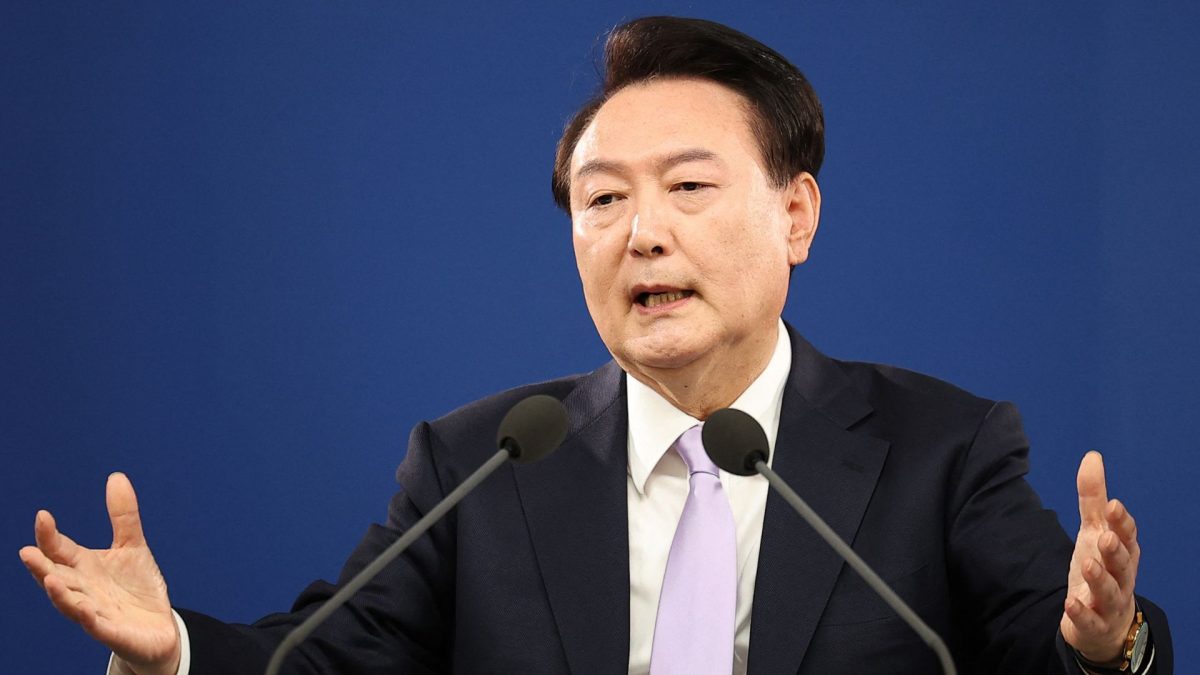South Korea’s ruling party has blamed ‘Chinese people’ for Yoon Suk-yeol’s impeachment, a move critics warn could strain relations with Beijing and deepen domestic divides.
According to a South China Morning Post report, two lawmakers from Yoon’s conservative People Power Party (PPP) sparked controversy by claiming that Chinese residents in South Korea were openly supporting rallies calling for Yoon’s impeachment.
“Chinese people are at the forefront everywhere, supporting impeachment,” South China Morning Post quoted PPP lawmaker Kim Min-jeon as saying at a pro-Yoon rally near the president’s residence last week.
“This impeachment movement reveals its true nature. The essence of this fight is whether we can preserve our liberal democracy or lose it. We must unite to stop them,” added Kim.
Since his impeachment by the National Assembly on December 14, Yoon has stayed in his residence near the Han River in Seoul, resisting summons and attempts by investigators to arrest him regarding his controversial martial law declaration on December 3, viewed as a failed self-coup. He remains suspended pending a Constitutional Court ruling.
When questioned about her speech, Kim denied any intent to target foreigners.
“I am not discriminating against foreigners,” she was quoted as saying. “However, I do believe that foreigners should stay out of local politics,” she added.
Kim cited a specific case involving a 20-year-old ethnic Chinese woman who spoke at a pro-impeachment rally in December. Born to Chinese parents of Korean ancestry, she renounced her Chinese citizenship and called for Yoon’s ousting.
“This incident shows how deeply foreign influence has infiltrated domestic politics,” South China Morning Post quoted Kim as saying.
The woman, who lives in Incheon City, advocated for inclusivity at the rally, saying, “I hope for a democracy where all marginalised groups can live peacefully together.”
Impact Shorts
More ShortsSince then, she has faced online hate campaigns falsely labeling her as a “Chinese impostor.”
Another PPP lawmaker, Yoo Sang-bum, said on Facebook that Chinese nationals were “heavily participating” in pro-impeachment rallies. He shared a post from a chat room user who claimed to have heard Chinese being spoken at one such rally.
On December 12, Yoon defended his martial law declaration, accusing political opponents of hindering legislation to prevent Chinese espionage. He cited two alleged incidents of Chinese spies filming American and South Korean military assets in June and November.
In response, Chinese Foreign Ministry spokeswoman Mao Ning called these claims “deeply unsettling” and urged Seoul not to “amplify baseless accusations.” The Chinese embassy in Seoul also warned its nationals against participating in political activities, cautioning that they could face deportation.
Chung Chung-sik, a 57-year-old farmer from North Jeolla province and regular rally participant, dismissed the notion of significant Chinese involvement in the protests.
“It’s ridiculous to say Chinese people are massively participating,” South China Morning Post quoted Chung as saying.
Dozens of pro-impeachment protesters have been camped outside Yoon’s residence for the past week, bundled in plastic sheets to shield against the winter cold. Meanwhile, about 100 anti-impeachment demonstrators gathered on Monday, demanding the arrest of opposition leader Lee Jae-myung for alleged election fraud and corruption.
Chang Jung-a, a professor at Incheon National University and a China expert, said only a small number of foreign students had attended the rallies, motivated by curiosity about South Korea’s democracy.
Park Seok-woon, a prominent anti-government activist, accused the ruling party of fanning Sinophobia to deflect attention from Yoon’s self-coup fiasco.
“The conservatives are spreading fake news to reframe the martial law blunder as a well-meaning move gone wrong,” Park told South China Morning Post.
Right-wing South Korean YouTubers have aligned with Yoon in their campaign against the opposition, labeling them as “pro-North Korean anti-state forces.”
Following the self-coup attempt, Yoon, an admirer of far-right YouTube channels, told supporters near his residence, “I’m watching your struggle in real-time through YouTube live streaming,” adding, “Our country is in danger as anti-state forces are running amok.”
After a warning from the Chinese embassy, one right-wing YouTube channel claimed that participation in pro-impeachment rallies had sharply declined.
Cho Gab-je, a prominent conservative commentator, said Yoon had apparently been “brainwashed” by extremist YouTube channels spreading conspiracy theories.
“His terminology is the same as those of extreme YouTube channels. It’s total brainwashing. Conspiracy theories, witchcraft, this kind of thing destroys a person,” South China Morning Post quoted Cho as saying on South Korea’s CBS radio news show last week.
Columnist Hong Sung-guk dismissed accusations of Chinese interference as another conspiracy theory, comparing it to claims that the 2024 National Assembly elections were rigged by the opposition.
“South Korea has some of the world’s most avid YouTube users, including politicians, who become trapped in information bubbles created by conspiracy theorists which deepens political divides and harms ties with China," he told South China Morning Post.
However, Yoon’s defence lawyer argues that evidence of election rigging, including ballot stuffing and result tampering, is compelling enough to warrant an investigation.
Following the impeachment vote on Yoon, Prime Minister Han Duck-soo became acting president but was impeached on December 27 for allegedly interfering with proceedings against Yoon. Finance Minister Choi Sang-mok is currently serving as acting president.
With inputs from agencies
)